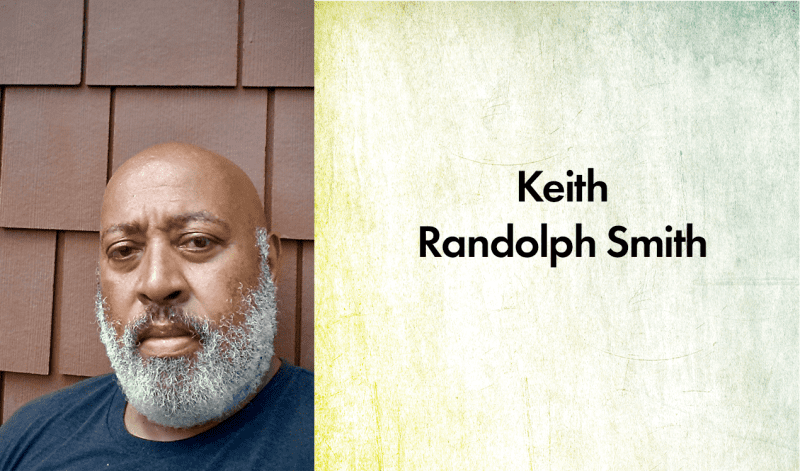Teaching artist Leah Reddy spoke with Keith Randolph Smith about his work on …what the end will be.
LEAH REDDY: What is your theatre origin story?
KEITH RANDOLPH SMITH: My origin story is direct and circular. I remember seeing plays while I was in grade school and middle school because our classes would go to the Cleveland Playhouse. I was born and raised in Cleveland. That's when they had resident theatre companies. Every year you see a lot of the same actors. I remember liking that.
I did a play in the third grade. It was about English, and I was the Duke of Speech. I don't remember much about it. But fast forward [to young adulthood], I got out of the Army—I did three years—and I wanted to go back to school. I was a communications major, and I saw a notice about a play. It was Marsha Norman's Getting Out. So I went to the bookstore, and I’m thinking, “I don't know if I've ever read a play.”
I got the play, and I was like, “Oh, this is a good story.” I never had entered the theatre building [on campus] because it had these tinted windows. I'm like, “What the hell are they doing in there? Why are the windows tinted?” I just walked past everyday thinking, “I can't audition. I'm not an actor. I don't know what to do.”
On the last day of auditions, I made myself walk in. I was so scared. I auditioned and got in. After I finished the play, I changed my major from communications to theatre, took more theatre classes, and worked at theatres around Cleveland. I met an actor from New York who had gone to the American Academy of Dramatic Arts. Then I saw a flier for it in the theatre department on the bulletin board. So I auditioned, got in, and I finished school there.
LR: What excites you about working on this particular play?
KRS: What excites me about working on this play is that many times queer life is portrayed as a lone individual. We don't always get to see what happens once we go home. We're opening a door and letting you see what home is like. That's what's big for me. It's not a one-dimensional offering.
I’ve been a part of workshops of the play. I'm committed to Mansa's story, and I have to do THIS play. It's coming at an opportune time in our field because the whole field is going through, I believe, a metamorphosis. It's changing, and I pray for the better.
LR: You mentioned something that I want to ask you about. How has your relationship to this work changed over the past two years, since you signed on before the pandemic started?
KRS: My relationship to the play has not changed. I'm such a big fan of Mansa and Margot. What I have loved is when Mansa says , "I got a new draft." I'm like, “Please send it.” I love new plays for the reason that they are living art. The play, the essence, has never changed. My relationship to the story has only gotten deeper over time, just from reading and researching and asking questions of the script. I can't wait to get into the rehearsal room and engage with all of the artists involved.
LR: How is originating a role different from playing a character who's familiar to an audience?
KRS: Playing a role that's established, the audience has expectations. Originating a role is like the playwright sends you out on some mission to go somewhere and they give you this map and a compass. And you've never been there before. They give you a light and some batteries. You are going to have to take baths in a river. You're going to have to find food.
So we got the map and the compass, and we all take a leap of faith together. That's the beauty of it and the scary part of it, too. It's all an adventure.
LR: What advice do you have for aspiring artists?
KRS: The advice that I would give young artists is to experience. Read whatever you can, see whatever you can, be present. It all boils down to being authentic and present to everything that arises. It’s authenticity. Bring your authentic self to your work.
Simple, not necessarily easy. That's the difference between those two words. I can teach you what an objective is, what an obstacle is, what a beat is. But it's when you put your authentic self to that and share it that you can create a lived-in performance that offers the audience either a mirror or a window into our human experiences.
Study experience. You get a chance to travel, do it. Go to Africa, Europe, Asia, or wherever your heart leads you. Learn, have those experiences. People drive on different sides of the street, eat different foods and they listen to different music. Find some hobbies. Learn how to do things because in your artist's career, you may be called to share what you have experienced and learned. Find out about flowers, learn to play chess, learn how to ride a bike. You're going to use it sooner or later in your work. Be observant, pay attention, stay curious, and be present.

